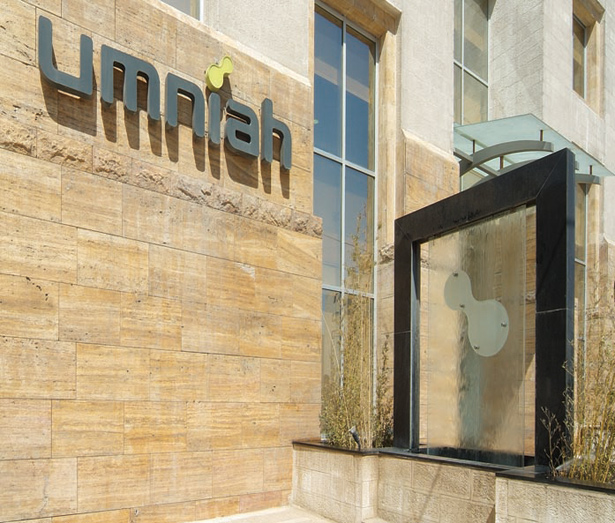Jordan Ministry of ICT
Ministry of ICT Jordan, Minister of ICT Jordan, H.E. Marwan Jumaa
After 10 years of work, the sector has now grown to about 2.2 billion dollars in size, of which 1.3 billion is in telecom and 900 million is in IT.
Interview with H.E Marwan Jumaa, Minister of ICT Jordan
What is your assessment of Jordan’s ICT sector?
The sector has come a long way. When we started this whole drive back in 1999, when His Majesty assumed the throne, it was basically his vision to establish an ICT industry in Jordan because it harnesses the only talent we have, which is human beings. Back in 1999 we only had 2 telecoms, one fixed operator and a mobile operator. The IT industry on its own was very small, very fragmented.
The over all size was not more than half a million dollars. In terms of exports, we didn’t have any exports. Employment was about 4,000-5,000 as a whole. The vision was if you invest in people and you cater to the region you can eventually create industry; if you invest in the rule of law, the required regulations, quality of infrastructure and the capital market in terms of what venture capitalists look for.

This was the first time in the Middle East where the private sector took the lead. We insured that the right rules were in place, and that the telecom market was fully liberalized. Jordan has the most liberalized telecom in the region. We insured that the environment is conducive for people to come and establish business and we focused a lot on the quality of our graduates.
After 10 years of work, the sector has now grown to about 2.2 billion dollars in size,
of which 1.3 billion is in telecom and 900 million is in IT.
Of the total number, almost 60% of the companies have very high value add solutions.
Employment reached about 70,000 in the sector, 15,000 direct and 55,000 indirect jobs as a result of companies investing in their IT departments. Our exports came from 0 to about a quarter of a billion dollars. You have 4 mobile operators, you have multiple fixed line operators; you have broadband penetration increasing rapidly.
So where are the key investment opportunities in the sector?
Jordan is a selling point for the rest of the region. From Jordan you address over 300 million Arabs, a very young population. Pricing power in the region is relatively high compared to most other regions because of oil and the availability of funding. Growth rates in the region are very high.
A lot of companies are choosing Jordan because from Jordan you can easily export your solutions completely tax free; there is zero taxation on all exports of ICT.
“The corporate tax law in Jordan is among the lowest in the region; it is only 14% income tax.
We have special economic zones in which you can hire foreign labor and pay only 5%
corporate income tax, zero customs and zero taxes on exports.”
We have seen players like SYSCO, for example. After 10 years of being in Jordan now, SYSCO’s technical global support center in Jordan is being rated as SYSCO’s leading in the world and employing all local expertise. Recently we’ve also had HP deciding to perform some of their regional operations out of Jordan. We are working with IBM hopefully to establish an IBM center in Jordan as well.
What are your strategic goals for 2010-2011; what would you like to push and what is your vision for the next year?
What I have to do is enable the local industry more and more. The more we as a government commit to local products, and enable our products to compete on a global scale, the easier it is to sell them globally. The more we adopt local solutions the easier it is for these players to export their products.
We believe in the value of enabling all Jordanians; broadband must reach all Jordanians. It cannot be made only available to those who can afford the service, so expansion of broadband in rural areas is important.
Recently we decided to exempt Wi-max operators completely from annual frequency fees, conditioned they expand their services throughout the country. We have lowered the sales tax on all internet services to 8%. Enabling an E- government is also important to expand and improve government services.
We will be launching services that the average Jordanian will use, whether on their mobile or their regular pc or laptop. ICT is not only important in terms of the sector on its own; it is an enabler in education, for the private sector, and for individuals.
Are we properly using IT in education and businesses? Is there an IT component that is impacting other businesses and helping them grow? That is what we have to focus on. A key thing we need to work on is the quality of our graduates coming out of our universities. We understand that the opportunities in ICT are global, but so is the competition.
Our companies are competing globally, which is a good opportunity, but are facing very stiff competition from global leaders. The last point is important for small-medium companies, SMEs, and to enable a venture capital industry in Jordan and to enable funding for start ups at the start up stage. Many people who have ideas don’t know who to resort to for funding.
Is there a point of concern that you are going too fast and the rest of the population is lagging behind?
Job creation is translating into opportunities for Jordanians, and this is how you will gain grass root support. I think that there is no better fit for Jordan than the ICT sector, because it leverages the only resource that we have, which is people. This is a sector that you can easily export. If you make sure people are properly educated and you give access to capital funding to all Jordanians who have good ideas and you create more jobs you will gain more support.
What are the main obstacles that you are finding on your way towards your goals?
Sometimes the government’s democracy and red tape gets in your way. You can feel it in the ICT sector, because ICT moves much faster than any of the other sectors. A real area of concern is trying to create a sense of urgency in our ministry and throughout the government. It’s important to realize that E-government is about change management, buying, accepting. Understanding that ICT is a tool, that if properly used can help you, is an issue that we tend to neglect.
Can you mention some of the key PPP or regional projects that you are currently working on?
The most successful Private Public Partnership or partnerization process in Jordan has been the telecom sector, with revenue of above 1.3 billion dollars. 3G is available now and we are licensed to even 4G frequency and Wi-max operators, because of partnerizations. We have Zain, the Kuwaiti company, Fast Telecom Orange, Batelco owning Umniyah, and other regional players owning smaller players. As a government we have decided to completely divest from telecom to be a fair player.

The problem is when a government ends up with a stake in any of the operators they will not be an honest broker. In Jordan we made a conscious decision back in 2000 to completely separate policy from regulation, from operation. So the ministry is strictly a policy maker. We have a telecom regulator that regulates a sector based on our policy, indpenedant from the ministry. The operators are completely private sector owned. As a government we make our money from revenue share and from taxation.
What is next?
We are now in the process of revisiting the strategy for the next five years. The beauty of our strategy is that every year we review our strategy because everything is fluid in ICT. Look at Twitter and Facebook; 3 years ago that was not on anyone’s agenda, but now you have social media overtaking traditional internet by storm. No one knows what will happen next year and constant review is important.
I think the opportunity we have is that today the internet has become very viral, meaning that any concept or idea you have can reach millions in seconds. This is an opportunity for those who have ideas because now literally overnight you can reach millions of people, and that’s why ICT can becomes even more an agent of growth for those who have good ideas.